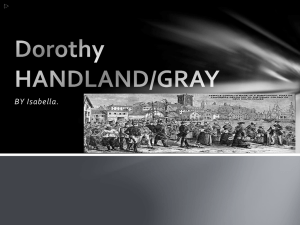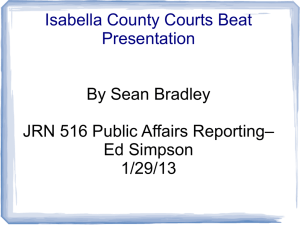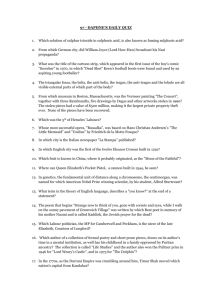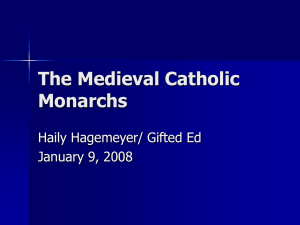Isabella Van Wagener, also known as Sojourner Truth (1878)
advertisement
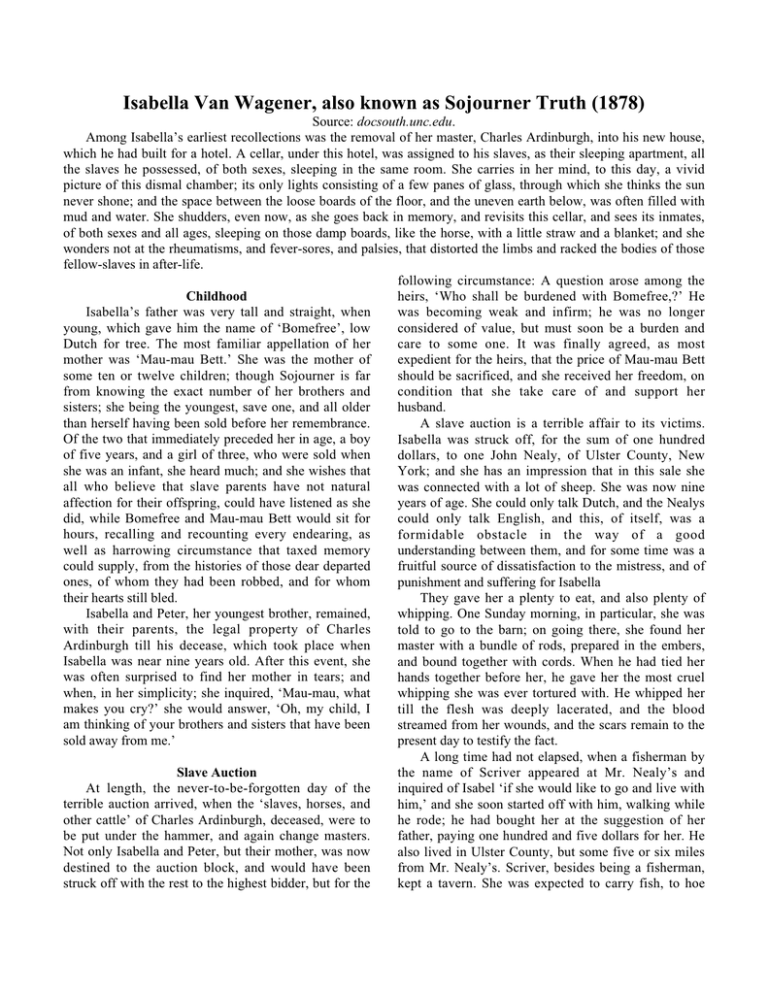
Isabella Van Wagener, also known as Sojourner Truth (1878) Source: docsouth.unc.edu. Among Isabella’s earliest recollections was the removal of her master, Charles Ardinburgh, into his new house, which he had built for a hotel. A cellar, under this hotel, was assigned to his slaves, as their sleeping apartment, all the slaves he possessed, of both sexes, sleeping in the same room. She carries in her mind, to this day, a vivid picture of this dismal chamber; its only lights consisting of a few panes of glass, through which she thinks the sun never shone; and the space between the loose boards of the floor, and the uneven earth below, was often filled with mud and water. She shudders, even now, as she goes back in memory, and revisits this cellar, and sees its inmates, of both sexes and all ages, sleeping on those damp boards, like the horse, with a little straw and a blanket; and she wonders not at the rheumatisms, and fever-sores, and palsies, that distorted the limbs and racked the bodies of those fellow-slaves in after-life. following circumstance: A question arose among the Childhood heirs, ‘Who shall be burdened with Bomefree,?’ He Isabella’s father was very tall and straight, when was becoming weak and infirm; he was no longer young, which gave him the name of ‘Bomefree’, low considered of value, but must soon be a burden and Dutch for tree. The most familiar appellation of her care to some one. It was finally agreed, as most mother was ‘Mau-mau Bett.’ She was the mother of expedient for the heirs, that the price of Mau-mau Bett some ten or twelve children; though Sojourner is far should be sacrificed, and she received her freedom, on from knowing the exact number of her brothers and condition that she take care of and support her sisters; she being the youngest, save one, and all older husband. than herself having been sold before her remembrance. A slave auction is a terrible affair to its victims. Of the two that immediately preceded her in age, a boy Isabella was struck off, for the sum of one hundred of five years, and a girl of three, who were sold when dollars, to one John Nealy, of Ulster County, New she was an infant, she heard much; and she wishes that York; and she has an impression that in this sale she all who believe that slave parents have not natural was connected with a lot of sheep. She was now nine affection for their offspring, could have listened as she years of age. She could only talk Dutch, and the Nealys did, while Bomefree and Mau-mau Bett would sit for could only talk English, and this, of itself, was a hours, recalling and recounting every endearing, as formidable obstacle in the way of a good well as harrowing circumstance that taxed memory understanding between them, and for some time was a could supply, from the histories of those dear departed fruitful source of dissatisfaction to the mistress, and of ones, of whom they had been robbed, and for whom punishment and suffering for Isabella their hearts still bled. They gave her a plenty to eat, and also plenty of Isabella and Peter, her youngest brother, remained, whipping. One Sunday morning, in particular, she was with their parents, the legal property of Charles told to go to the barn; on going there, she found her Ardinburgh till his decease, which took place when master with a bundle of rods, prepared in the embers, Isabella was near nine years old. After this event, she and bound together with cords. When he had tied her was often surprised to find her mother in tears; and hands together before her, he gave her the most cruel when, in her simplicity; she inquired, ‘Mau-mau, what whipping she was ever tortured with. He whipped her makes you cry?’ she would answer, ‘Oh, my child, I till the flesh was deeply lacerated, and the blood am thinking of your brothers and sisters that have been streamed from her wounds, and the scars remain to the sold away from me.’ present day to testify the fact. A long time had not elapsed, when a fisherman by Slave Auction the name of Scriver appeared at Mr. Nealy’s and At length, the never-to-be-forgotten day of the inquired of Isabel ‘if she would like to go and live with terrible auction arrived, when the ‘slaves, horses, and him,’ and she soon started off with him, walking while other cattle’ of Charles Ardinburgh, deceased, were to he rode; he had bought her at the suggestion of her be put under the hammer, and again change masters. father, paying one hundred and five dollars for her. He Not only Isabella and Peter, but their mother, was now also lived in Ulster County, but some five or six miles destined to the auction block, and would have been from Mr. Nealy’s. Scriver, besides being a fisherman, struck off with the rest to the highest bidder, but for the kept a tavern. She was expected to carry fish, to hoe corn, to bring roots and herbs from the wood for beers, and go to the Strand for a gallon of molasses or liquor as the case might require. After living with them about a year and a half, she was sold to one John J. Dumont, for the sum of seventy pounds. This was in 1810. Mr. Dumont lived in the town of New Paltz, and she remained with him till a short time previous to her emancipation by the State, in 1828. Isabella was married to a fellow-slave, named Thomas, after the fashion of slavery, one of the slaves performing the ceremony for them; as no true minister of Christ can perform what he knows to be a mere farce, unrecognized by any civil law, and liable to be annulled any moment, when the interest or caprice (whim) of the master should dictate. In process of time, Isabella found herself the mother of five children. When Isabella went to the field to work, she used to put her infant in a basket, tying a rope to each handle, and suspending the basket to a branch of a tree, set another small child to swing it. Emancipation After emancipation had been decreed by the State, some years before the time fixed for its consummation, Isabella’s master told her if she would do well, and be faithful, he would give her ‘free papers,’ one year before she was legally free by statute. In the year 1826, she had a badly diseased hand, which greatly diminished her usefulness; but on the arrival of July 4, 1827, the time specified for her receiving her ‘free papers,’ she claimed the fulfillment of her master’s promise; but he refused on account of the loss he had sustained by her hand. She plead that she had worked all the time, but her master remained inflexible. The question in her mind now was, ‘How can I get away?’ One fine morning, a little before day-break, she might have been seen stepping stealthily away from the rear of Master Dumont’s house, her infant on one arm and her wardrobe on the other; the bulk and weight of which, probably, she never found so convenient as on the present occasion, a cotton handkerchief containing both her clothes and her provisions. Mr. and Mrs. Van Wagener listened to her story, assuring her they never turned the needy away, and willingly gave her employment. She had not been there long before her old master, Dumont, appeared. Mr. Isaac S. Van Wagener then interposed, saying, he had never been in the practice of buying and selling slaves; he did not believe in slavery; but, rather than have Isabella taken back by force, he would buy her services for the balance of the year, for which her master charged twenty dollars, and five in addition for the child. She resided one year, and from them she derived the name of Van Wagener; he being her last master in the eye of the law, and a slave’s surname is ever the same as his master. A little previous to Isabel’s leaving her old master, he had sold her child, a boy of five years, to a Dr. Gedney, who took him with him as far as New York city, on his way to England; but finding the boy too small for his service, he sent him back to his brother, Solomon Gedney. This man disposed him to his sister’s husband, a wealthy planter, by the name of Fowler, who took him to his own home in Alabama. This illegal and fraudulent transaction had been perpetrated some months before Isabella knew of it. The law expressly prohibited the sale of any slave out of the State. When Isabel heard that her son had been sold South, she immediately started on foot and alone, to find the man who had thus dared, in the face of all law, human and divine, to sell her child out of the State; and if possible, to bring him to account for the deed. Quakers gave her lodgings and saw that she was taken and set down near Kingston, with directions to go to the Court House, and enter complaint to the Grand Jury. The clerk now gave her a writ, directing her to take it to the constable of New Paltz, and have him serve it on Solomon Gedney. She obeyed, walking or rather trotting, in her haste, some eight or nine miles. Solomon Gedney, meanwhile, consulted a lawyer, who advised him to go to Alabama and bring back the boy, otherwise it might cost him fourteen years’ imprisonment, and a thousand dollars in cash. (A lawyer told Isabelle) if she would give him five dollars, he would get her son for her, in twenty-four hours. She performed the journey to Poppletown, a distance of some ten miles, collected considerable more than the sum specified by the barrister (from the Quakers); then, shutting the money tightly in her hand, she trotted back, and paid the lawyer a larger fee than he had demanded. The next morning saw Isabel at the lawyer’s door, while he was yet in his bed. He now assured her that before noon her son would be there. She went to the office, but at sight of her the boy cried aloud, denying his mother, and clinging to his master. When the pleading was at an end, Isabella understood the Judge to declare, as the sentence of the Court, that the ‘boy be delivered into the hands of the mother,having no other master, no other controller, no other conductor, but his mother.’
